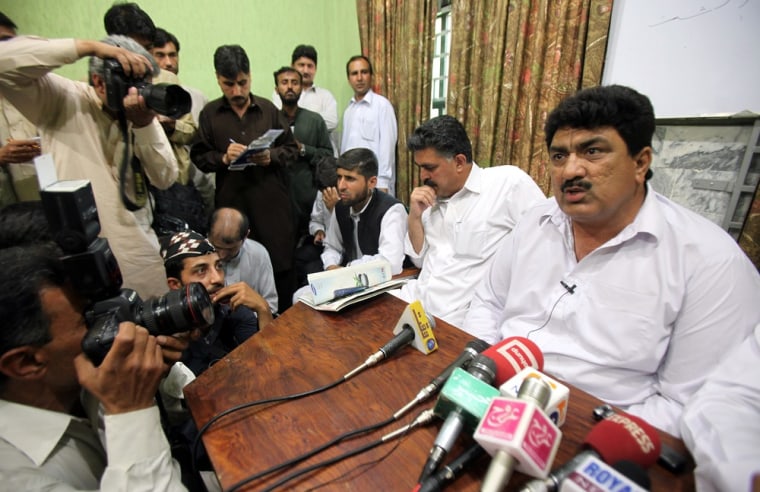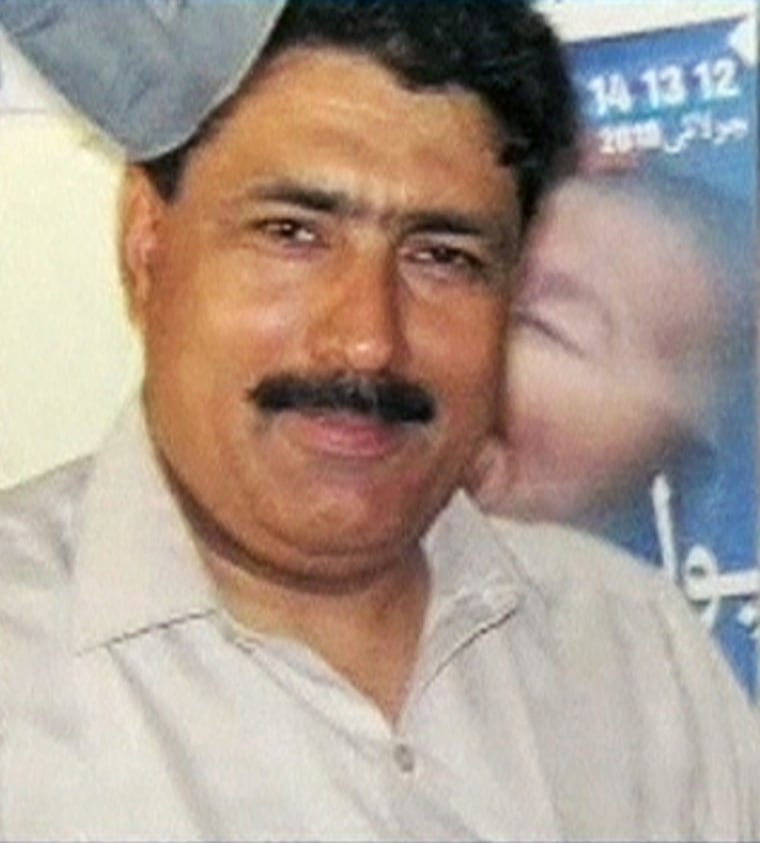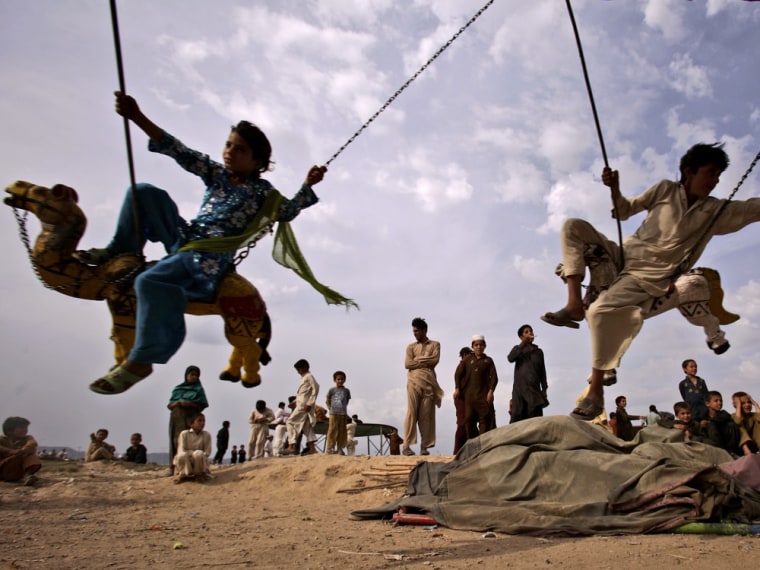
PESHAWAR, Pakistan – The brother of the Pakistani doctor imprisoned for helping the CIA to track Osama bin Laden says the family needs protection, and the U.S. government should provide it.
Jamil Afridi, elder brother to Dr. Shakil Afridi, spoke to NBC News on Monday in Peshawar, after he and his lawyers addressed a group of journalists about his brother's case.
Pakistan jails doctor who helped CIA track down bin Laden
"My appeal to the U.S. government is that they give Dr. Shakil protection, and give us – his brothers and sisters – protection as well," said Afridi. "We have no protection here."
Dr. Shakil Afridi was arrested in the weeks after the May 2011 U.S. raid on the bin Laden compound in Abbottabad, Pakistan. The doctor ran a fake vaccination campaign for U.S. intelligence as part of an attempt to get inside the compound and confirm Bin Laden's location. Though those plans failed, U.S. officials have said Dr. Afridi's efforts did help lead them to bin Laden.

Dr. Afridi was tried under a legal system known as the Frontier Crimes Regulation (FCR), which applies only in Pakistan's semi-autonomous tribal areas. Trials are conducted by a local government official in consultation with tribal elders, and the accused are not allowed legal representation. Dr. Afridi was convicted on treason charges and sentenced to 33 years in prison.
His brother dismissed the charges against Dr. Afridi as "false," saying he did nothing against Pakistan's national interest, and that "anything" could happen to him or his family now.
'Schizophrenic ally': US to ax $33 million in Pakistan aid?
"For one whole year, we had no idea where he was – whether he was alive or dead," said Afridi. "Now they say he's in Central Jail, Peshawar, but we're not allowed to see him."
Dr. Afridi's conviction further complicated already tense relations between the U.S. and Pakistan. U.S. officials demanded his release, claiming his efforts helped to capture an enemy to both Pakistan and the U.S. But Pakistani officials have called Dr. Afridi's decision to work for a foreign intelligence agency a "serious offense."

U.S. officials say they expect to continue the conversation about Dr. Afridi with their Pakistani counterparts, but the list of unresolved issues between the two countries continues to grow.
Both sides are negotiating the re-opening of the overland NATO supply routes that run through Pakistan – shuttered since last November – and the Pakistan government also is calling for a complete halt on all U.S. drone strikes within the country. In the last week alone, there have been four strikes carried out in the border region with Afghanistan.
More world news from msnbc.com and NBC News:
- Can voters force candidates to compromise in Egypt run-off?
- 'War criminal': UK ex-PM Blair heckled while testifying
- Horror and death in former Syrian rebel stronghold
- Couple kept boy, 11, in coal cellar as punishment for raiding refrigerator
- Video: British woman may face death in Indonesia
Follow us on Twitter: @msnbc_world